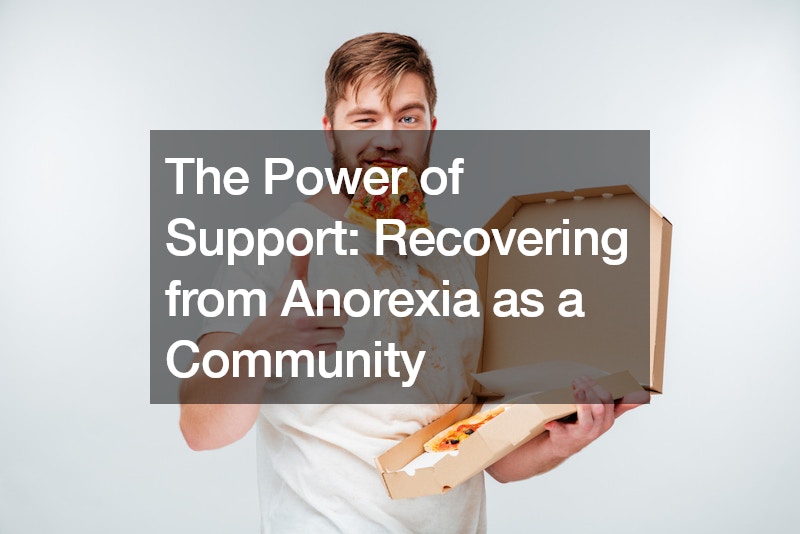Anorexia nervosa, characterized by severe food restriction and a distorted body image, can feel isolating and lonely. The constant struggle with weight and control creates a barrier between the individual and a fulfilling life. Recovery from anorexia, however, thrives on connection. Building a strong support community is a crucial element in effective anorexia treatments, offering encouragement, understanding, and a path back to health and well-being.
The Power of Shared Experience
Support groups, either in-person or online, connect individuals with anorexia to others who understand the complexities of the disorder. Sharing struggles, celebrating successes, and learning from each other’s experiences fosters community and belonging.
This validation can be incredibly empowering, reminding individuals with anorexia that they are not alone and that recovery is possible.
Professional Guidance
Anorexia treatments are most effective when they combine the strength of community support with the expertise of qualified professionals. Therapists specializing in eating disorders can provide individual therapy sessions to address the underlying causes of the disorder, such as anxiety or depression. These sessions can equip individuals with coping mechanisms to manage difficult emotions and develop a healthy relationship with food. In some cases, a registered dietitian can create a personalized meal plan and provide guidance on establishing healthy eating habits.
Building a Strong Network
Building a strong support network extends beyond formal groups and therapy sessions. Friends can be a powerful source of encouragement and understanding. Creating a safe space for open communication allows individuals with anorexia to express their struggles without fear of judgment. Friends can offer a listening ear, encourage healthy activities, and celebrate milestones on the road to recovery. Remember, support can also come from online communities or forums where individuals connect with others facing similar challenges.
Advocacy for Change
Spreading awareness about eating disorders helps to create a more understanding environment and reduce stigma. Advocacy efforts can focus on educating the public about the complexities of anorexia, challenging unrealistic body image portrayals in media, and promoting resources for those struggling with the disorder. By creating a more informed and supportive community, we can help prevent new cases of anorexia and ensure that those seeking recovery have access to the support they need.
A Journey of Hope
Anorexia is a challenging eating disorder, but recovery is possible. By harnessing the power of a supportive community, qualified professionals, and a commitment to self-care, individuals can overcome anorexia and build a healthy, fulfilling life. Remember, recovery is a journey, not a destination. There will be setbacks and challenges, but with the right support system, individuals can navigate these obstacles and achieve long-term success.
.


